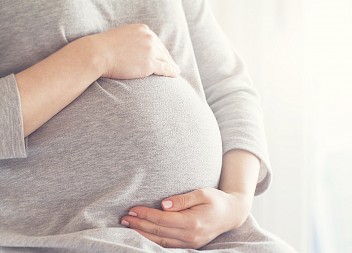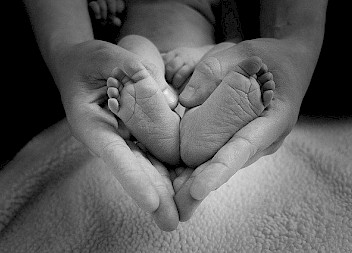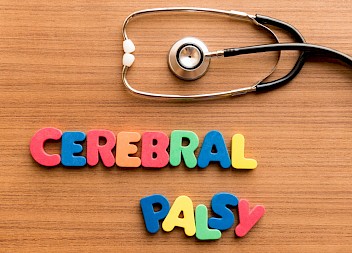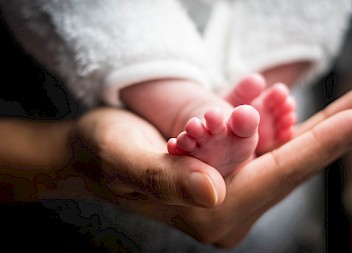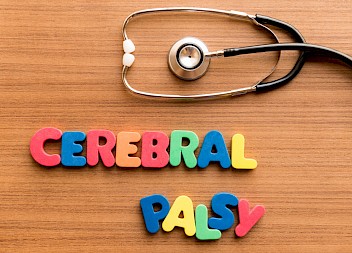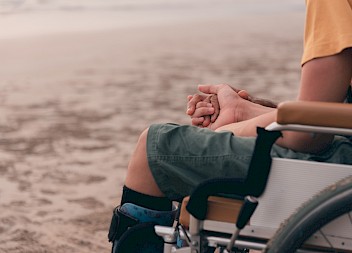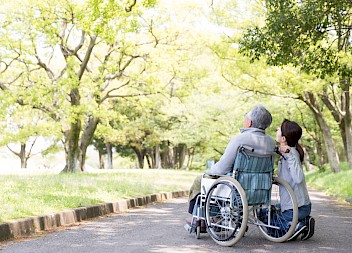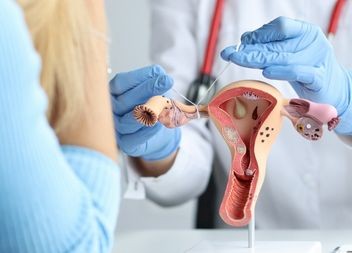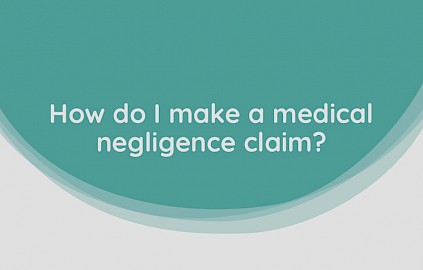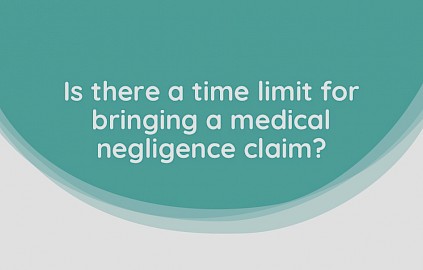What is Group B Strep?
Group B Strep, or Group B Streptococcus, is a common type of bacteria called streptococcal that is found in the digestive system or vagina. Group B Strep is not a sexually transmitted disease, nor a sign of ill health or poor hygiene. Between 20-40 per cent of women will be a carrier of Group B Strep, but it is also common in men.
Treatment for the mother is IV antibiotics, usually Penicillin, for 15-30 minutes every four hours throughout labour. Antibiotics should be given as soon as labour starts but are not needed before. You should be given antibiotics if a urine or Group B Strep test detected the infection during pregnancy.
If you had Group B Strep in a previous pregnancy, regardless of whether your baby developed the infection, there is a 50 per cent chance you will be carrying Group B Strep again.
Group B Strep can be either early onset or late onset. Early onset is when the baby becomes unwell during the first seven days of life, usually showing symptoms within 12 to 24 hours. This is the most common type of Group B Strep. Late-onset Group B Strep is where symptoms develop between seven days and three months of life.
Group B Strep Claims: How Might You Contract Strep B?
Group B Strep is usually harmless to healthy adults, but it can be dangerous to pregnant women as there is a small risk it can be passed on to the baby during labour.
There is an increased risk of Group B Strep if you go into premature labour, have a high temperature during labour, have previously had a baby diagnosed with Group B strep infection, or have not delivered your baby 24 hours after your waters have broken.
Another risk with Group B Strep is the lack of antenatal awareness. Antenatal care doesn’t always make expectant parents aware of the signs and risks of Group B Strep, and some are not aware that there is a private Group B Strep test available. This lack of awareness and knowledge puts more babies at risk of contracting Strep B.
Who Is Most At Risk of Group B Strep?
Young babies are most at risk of contracting Group B Strep. According to Group B Strep Support, two babies contract Group B Strep at birth per day. While the majority will make a full recovery, one baby per week survives with long-term disability complications, and one baby per week will lose their life.
Pregnant woman, the elderly, and individuals who are already ill are also more at risk of Group B Strep. Group B Strep can trigger repeated or severe infections in those who are vulnerable.
Symptoms of Group B Strep in babies include:
-
Breathing difficulties
-
Very sleepy or unresponsive
-
Inconsolable crying
-
Floppiness
-
Not feeding well
-
High temperature
-
Blotchy skin or colour change
-
Fast or slow heart rate
-
Low blood pressure
-
Low blood sugar
When Can Group B Strep Negligence Claims Be Made?
Medical negligence claims for Group B Strep infection usually arise due to mistakes made in the care of pregnant women and their newborn babies.
For a claim for Group B Strep negligence to be successful, two conditions must be met:
-
That treatment fell below the reasonable standard
-
That the harm or loss was caused as a direct result of said negligence
Not all cases of Group B Strep infection are avoidable. It may be that nothing more could have been done to change the outcome. For instance, IV antibiotics cannot prevent late-onset Group B Strep (an infection that develops after the first week of life). But, most cases of early on-set Group B Strep are preventable.
Examples of Group B Strep negligence:
-
Symptoms of Group B Strep in baby being missed or mismanaged
-
Delay to IV antibiotic treatment in baby or mother
-
Antibiotic treatment stopped early (before the 7-day course is finished)
-
Newborn contracting Group B Step infection while in hospital
How Can a Delayed Diagnosis Affect a Group B Strep Claim?
If left untreated due to delayed diagnosis or substandard medical care, Group B Strep can develop into life-threatening conditions like sepsis, meningitis, and pneumonia. This puts a child at an increased risk of life-long injury, such as sight loss, hearing loss, brain damage, cerebral palsy, amputation, or kidney damage. It can also prove fatal. Around 4-6% of babies who develop Group B Strep and 1 in 20 non-pregnant adults with a severe Group B infection lose their life.
Because the NHS does not routinely test for Group B Strep during pregnancy, most women who are carriers of Group B Strep are unaware until after their baby is born and has developed symptoms. This can be unexpected and traumatic and some women are made to feel like it is their fault. However, the mother is never responsible for their baby becoming seriously unwell with Group B Strep.
If you think a delayed diagnosis has affected you and your baby, reach out to us today. Our team of friendly and compassionate solicitors have years of experience helping parents and families seek justice for their child’s birth injuries.
How much compensation will my child receive for a Group B Strep negligence claim?
Compensation for Group B Strep negligence, as with other birth injury claims, can often be substantial due to the ongoing care needs of the child.
Medical negligence concerning Group B Strep can allow you to gain compensation in two parts: general damages and special damages.
-
General damages
General damages for Group B Strep claims are for pain and suffering; these are bound by strict guidelines.
For example, if your child developed sepsis, which led to the amputation of one arm, they may receive from £96,160 to more than £137,160 in general damages (Judicial College Guidelines (JCG) 16th edition, section 7(E)(b)).
Sight loss can recover general damages of up to in the region of £268,720 (JCG 16th edition, section 5(A)) while hearing loss is up to £140,660 where deafness occurs at an early age and prevents or seriously affects the development of normal speech (JCG 16th edition, section 5(B)).
Children with brain damage caused by Group B Strep negligence can receive up to £403,990 (JCG 16th edition, section 3(A)) in general damages.
-
Special damages
Special damages for Group B Strep claims cover any past or future financial losses or expenses incurred due to the negligence. This includes loss of earnings, medical equipment, home adaptations, and private care costs.
Special damages usually far exceed the amount awarded in general damages as they reflect the life-long needs of the child.
Parents rightly want to ensure their child has the support in place to lead a fulfilled and comfortable life as far as possible without worrying about the financial strain their injuries may put on the family.
Where injuries are very serious, compensation usually includes a lump sum settlement and annual payments.
If liability is admitted early on in the process, a specialist medical negligence solicitor can apply for interim payments of damages to be made before the full and final settlement is agreed or awarded by the Court.
Is there a time limit to Group B Strep negligence claims?
Usually, there is a three-year time limit from the time of injury or date of knowledge of injury, if later, for medical negligence claims.
For claims relating to children, the three-year period commences on their 18th birthday, so they have until their 21st birthday to make a claim. Alternatively, you could become a litigation friend for your child to start their claim sooner.
However, if the child does not have – and will never have – mental capacity, there is no time limit to the claim.
How are Group B Streptococcus negligence claims funded?
At Medical Solicitors, we take all our claims on a No Win, No Fee basis and do not offer Legal Aid funding.
The reason for this is that there are some disadvantages to Legal Aid for claimants. Not only do the Legal Aid Authority (LAA) limit the choice of experts we can approach, but they also require evidence your child’s case has merit.
With birth injuries like Group B Strep, the evidence of the injury may not appear for up to two years, so the LAA may reject an application as premature if your child has not met these milestones.
We aim to make the progression of cases quicker and easier with our No Win, No Fee agreements. There are no upfront fees, and our costs are deducted from your compensation at the end of a case should it be successful.
The Court must approve these as being reasonable and proportionate. If your case does not succeed, the value of our time is written off, protected by insurance we put into place on commencing a claim.
In the video below, our director, Caroline Moore, explains how No Win No Fee works and where solicitor costs are recovered.
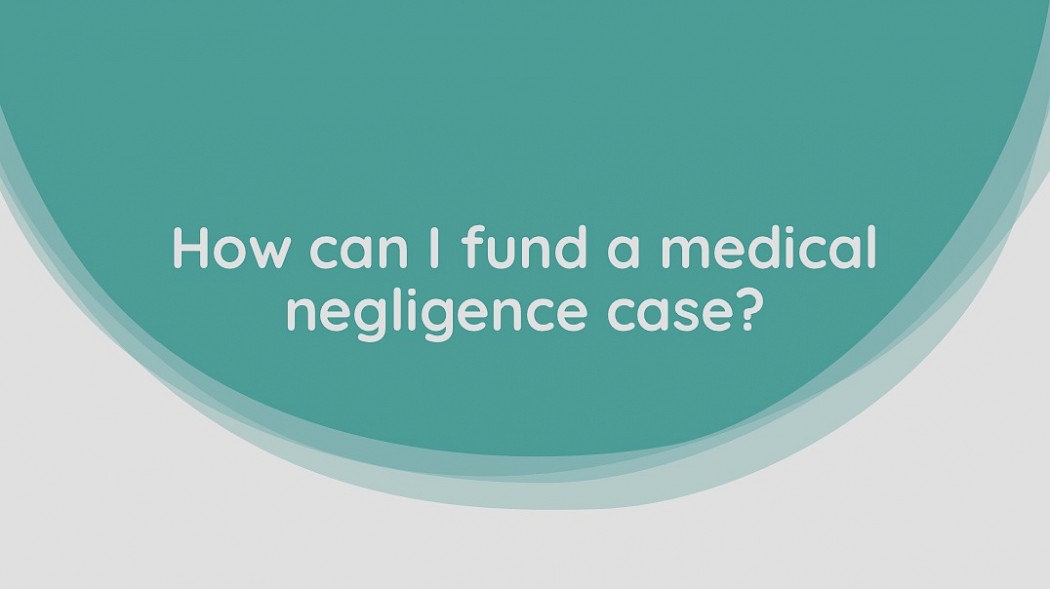
To view this video please enable JavaScript, and consider upgrading to a web browser that supports HTML5 video
How Can Medical Solicitors Help with GBS Claims?
Our specialist birth injury lawyers will have an initial discussion with you before offering advice on your next steps, such as making a formal complaint.
Our team can support you with drafting and submitting a letter to the relevant Patient Advice and Liaison Service (PALS).
We will then obtain your medical records and undertake some preliminary enquiries with our trusted medical experts to make a realistic assessment about whether you have a successful case to be made.
If your medical negligence Group B Strep claim is successful, you will also be able to ensure you recover a financial settlement to protect the health and well-being of your child for life.
The thought of making a medical negligence claim can be daunting, especially if your child’s care needs are demanding of your time. By seeking the support of a specialist medical negligence solicitor like Medical Solicitors, we will reduce the burden on you and ensure the complete process is as stress-free as possible.




